- Home
- Chris Ryan
Vortex cr-4
Vortex cr-4 Read online
Vortex
( Code Red - 4 )
Chris Ryan
Ben Tracey is having a well-deserved, restful week of birdwatching with his cousin, Annie. They're keen to catch a glimpse of the rare, nearly extinct Hen Harrier — and their wish comes true, but not in the way they'd hoped as they witness a man in an RAF uniform shoot one of the beautiful birds dead. When, later that day, Ben and Annie meet an old man full of conspiracy theories about the nearby RAF training base they're curious to know more and creep into the base — Spadeadam. But little do they know that they are in serious danger.Having walked into the middle of the real reason the Hen Harriers are being shot down, Ben and Annie are captured as intruders and taken to a secure unit on a deserted area of the camp. These birds are just helpless victims in a much bigger operation — they attract too many visitors to the area and there's a top-secret piece of warfare technology being developed that needs to be kept quiet. If this weapon gets into the wrong hands it could have catastrophic worldwide effects. Can Ben and Annie get out in time to spread the news?
Chris Ryan
Vortex
Location: on the borders of
Cumbria and Northumberland,
the United Kingdom
Prologue
1957. A secret location somewhere in England. Dawn.
He was far more ruthless and efficient than any weapon man could devise. And there was silence, high above the ground, as he watched patiently, waited to go in for the kill. His prey was down there — a long way down — but his eyes were keen and he was hungry.
The grey feathers of the male hen harrier made him look more like a ghost than a real bird as he drifted eerily against the steely light of the dawn sky. He glided effortlessly, his wings fixed in a shallow V-shape as, with the skill of a true hunter, he stalked his unsuspecting prey, low over the ground, only a few metres above the small rodent that would have run had it only known what was about to happen.
And when the moment came, the rodent barely even had time to whimper.
The hen harrier pounced with lightning speed, his talons carrying his suddenly motionless prey high into the sky. All need for secrecy gone, he let out his distinctive cry, a shrill, repetitive trilling that echoed through the crystal morning air. In response, there came a second cry — a female this time — and as if those two bird calls had been a signal for something, the air was suddenly filled with the kaleidoscope sounds of the dawn chorus. But it was the call of the hen harrier that was most distinctive of all.
The bird came to rest in a patch of tall grass just by a dirt track seldom used by people. Hidden. Protected. Safe from the ravenous eyes of other predators, and the thoughtless, dangerous movements of man.
As he fed, however, his sharp ears became aware of another noise. A strange noise. Not the dawn chorus, but something else: a low-pitched rumble, in the distance, but getting nearer. His head twitched in the direction of the noise, and he appeared for a moment to be listening intently as the sound grew louder. Suddenly the hen harrier grabbed his prey firmly in his talons once more and took again to the skies. By the time the truck passed the grassy patch where he had been, the bird was long gone.
It was a military vehicle — a three-ton general service truck left over from the war. Its army-green paint had started to peel and rust in places, but its wheels were chunky and serviceable and the khaki canopy over the back fully intact. The men who drove in it were not soldiers, however: they wore slightly frayed suits, one dark green, the other brown, with white shirts and thin ties. The man in the passenger seat was young and bespectacled; the driver was older and balding. Both were pale, and neither of them spoke a word to each other. They just looked straight ahead as their bodies shook in time with the movement of the truck over the bumpy road.
'Easy,' the younger man said finally as the truck motored over a particularly treacherous patch of ground. 'Let's not shake him up any more than we have to.'
His colleague momentarily glanced over his shoulder, as though he might be able to see through the back of the cab and into the canopied trailer behind them. But of course he couldn't and he just continued to drive in silence, though a little slower now.
Up ahead a small hut came into view. It had been constructed from concrete, and it looked new. Even the metal door — a familiar green colour — seemed to have been recently painted. The truck came to a halt just outside, and as the animal growl of the diesel engine faded to nothing, the ears of the two men were filled with another sound. It was coming from the trailer and it was unmistakable.
It was the sound of a man screaming.
They sat there for a moment, the muffled shouts filling their ears. 'Please, let me out! Please, don't do this! You don't have to do this!'
The younger man breathed in deeply and you could hear his breath shaking.
'It's the best thing for him, Lucian,' his colleague said quietly. 'The right thing. You do understand that, don't you? You do agree? If he messes everything up, who knows what they'll do to him?'
Lucian nodded grimly. 'It's OK,' he said. 'You won't get any trouble from me.'
'Good.' The older man nodded with satisfaction. 'We'll open up first, then get him out.'
Lucian climbed down from the cab and walked with his colleague towards the door. It was a relief to get away from the screaming. What was about to happen was not going to be nice. Not nice at all. But sometimes you had to think of the greater good. Their research was too important to be compromised by one man, even if that man did happen to be his brother. And like his friend had said, it was for his own benefit.
With the metal door unlocked, they walked into the hut.
Inside it was empty — concrete walls, concrete floor. But at the far end, against one of the walls, there was a wooden trap door. The older man unlocked it with a large key, then pulled it up. He disappeared momentarily down a flight of steps, then Lucian saw light flood out of the opening and his friend reappeared. He gave Lucian a determined nod, and the two of them returned to the car.
The screaming had stopped now, and when the older man opened the back of the truck, Lucian could see why. His brother was still there of course, hook-nosed and floppy-haired, his bright green eyes flashing in the darkness and his hands tied tightly behind his back; but now he was cowering in the corner of the truck, clearly terrified by the fact that they had come to a standstill. Lucian looked him straight in the eye.
'Please,' his brother whispered, as though all the fight had been knocked out of him. 'Please don't do this. I'm your brother.'
Lucian shook his head. This was for his brother's own good, he told himself yet again.
The older man jumped up into the cab of the truck and roughly tugged at the captive's arm. Limply, Lucian's brother stumbled along with him, and when he was thrown from the trailer, he fell to the ground like a puppet with no strings. Lucian and his colleague took one bound arm each and dragged him, whimpering, into the hut and down the stairs.
Lucian had never been down here before, but he knew of its reputation of course. This was where the experiments were done. By the light of the solitary yellow light bulb hanging from the ceiling he could see in the centre of the room a heavy metal chair, bolted firmly to the ground. The walls were covered with locked cabinets, and an empty metal trolley stood by the chair.
The older man roughly untied Lucian's brother. As if given a new lease of life by the freedom of his wrists, he started flailing uncontrollably, hitting out at his captors as they firmly, forcibly restrained him and pushed him into the chair. Lucian kept him sitting while the other man gagged his mouth.
'Is that really necessary?' Lucian asked.
'I'm afraid so,' his colleague replied. 'We've had instances where subjects have bit into their tongues. It's not a pr
etty sight.'
The gag did not stop the man from starting to scream again, however, and Lucian did his best to ignore the pitiful wails as he watched his colleague make a large rip in the shirt around his brother's upper arm, then turn and unlock a cupboard on the wall. He brought out a bottle filled with a clear liquid, and a hypodermic needle.
'Lysergic acid diethylamide,' he observed shortly, though he needn't have.
Lucian knew perfectly well what it was.
At the sight of the needle, however, his brother had fallen silent and was now shaking violently.
'Will he remember anything?' Lucian asked.
'Bits and pieces,' the older man replied. 'He'll need a few treatments like this, but at the end of it he'll be very confused. With hallucinations. Probably for the rest of his life.'
He placed the bottle on the table, opened it, and inserted the syringe.
'The kind of doses we're going to give him will be enough to induce frequent psychotic episodes, especially as his mental health is frail at the moment.' He smiled. 'The upshot is,' he added, 'that nobody's going to believe a word your brother tells them. They'll think he's a lunatic. With a bit of luck, anything he tries to tell them about this place will be laughed off as the ravings of a madman. But I should warn you — the first treatment is always the most traumatic.'
Lucian looked down at his brother, seeing the fear in his eyes. Fear like he had never seen before. 'It's best this way,' he told his brother in a flat tone of voice, before watching what happened next with a kind of grisly fascination.
The metal of the needle glistened in the bright overhead light, and the patient started to hyperventilate as the older man approached him implacably.
He only screamed once, but that scream lasted from the moment the needle slid into his arm until after the clear fluid had been slowly and carefully pumped into his system. Lucian had heard people talk of bloodcurdling screams before, but had never quite known what the phrase meant. He knew now. His veins turned to ice and his limbs felt heavy on his body.
It's for his own good, he told himself, as he gazed dispassionately down on the shuddering body of his brother and stared as those piercing green eyes that had watched him ever since he was a child widened suddenly in a ghastly, almost inhuman stare.
The needle was pulled out of the man's arm, and he screamed again — not for as long this time, but just as loud. Still, Lucian knew that the walls of this place were thick. He doubted anyone would be able to hear the noise his brother was making.
And he was right.
As the sun continued to rise outside the hut, there was nothing to suggest what was going on below ground. Just the usual sound of the dawn chorus, and the ghostly sight of another hen harrier soaring high above the trees.
Chapter One
Fifty years later
Ben Tracey was bored.
Only a couple of weeks ago, when he had been stuck in a remote part of Africa in circumstances that, frankly, he wouldn't care to repeat, he'd have given anything to be back in rainy, grey Macclesfield. But now he was here, he found the four walls of his bedroom closing in on him, and his mood was as grim as the incessant and unseasonable rain that had been hammering against the windowpane for three days now, although it seemed much longer. The remainder of the summer holidays seemed to stretch endlessly before him: it would almost be a relief, he thought to himself more than once, to get back to school.
He could always phone round a few friends, of course, see what everybody was up to, maybe even go out; but something stopped him from doing that. He was a bit embarrassed to admit it, even to himself, but since his adventures in London, Adelaide and the Democratic Republic of the Congo, the pursuits and interests of his friends had seemed a bit… he didn't want to use the word childish, but he supposed that was it. More than that, he was beginning to get a bit paranoid. Stuff just seemed to happen to Ben Tracey. He had a knack of being in the wrong place at the wrong time, and it was a miracle he'd come through it all unscathed. He wasn't the type to brag about it, though, and none of his friends really knew what he'd been up against. They probably wouldn't believe him in any case, so he just kept quiet about it all and hoped his days of finding himself in mortal danger were at an end.
It didn't have to be quite this dull, though, did it? he thought to himself as he continued to watch the raindrops slide down the window.
He was woken from his daydream by a beeping sound. On the table in his bedroom, hidden under a mess of old magazines and T-shirts that should probably have found their way into the dirty-washing basket, was his new PDA — a present from his dad. 'For everything you've done,' Russell had said awkwardly, shaking Ben's hand in a grown-up kind of way as though they were work colleagues rather than father and son. Ben had mumbled a slightly embarrassed word of thanks, but once he'd opened the package, he was actually pretty excited. Say what you like about his dad, but as a scientist he was a bit like a teenager when it came to the latest electronic gadgets, and the device Ben held in his hand was pretty neat. He'd filled a good deal of time working his way around it over the past few days, and now he rummaged around on his messy table to find the palm-sized computer.
It was an email, he saw, as he tapped his finger to the screen, and his face lightened up into a broad smile when he saw who it was from: Annie, his cousin. Actually, she was his second cousin, or was it his cousin once removed? He'd forgotten, if he ever even knew, but it was always good to hear from her.
Plenty of people thought Annie was a bit weird. Truth to tell, she was a bit weird — Ben smiled to himself — but that didn't mean she wasn't good company. To look at her you'd think she was just another ordinary teenage girl: quite pretty, fashionably dressed; but there was a lot more to Annie than met the eye.
Her father, James Macpherson, was an air commodore in the RAF. Ben had seen him a number of times in his military uniform, and his jacket was practically plastered in colourful decorations for bravery. He'd been all over the world with his job, and still spent more time away from home than he did with his family. Annie adored him — idolized him, even — and as a result she was obsessed with all things military. She could tell you the spec of any plane you cared to show her, she knew more about guns than anybody Ben had ever met, and she was, for her age, an expert at tae kwon do. It was an extremely bad idea to try and patronize Annie by asking her a girlie question about her make-up — you were likely to end up groaning on the floor in agony after receiving a well-placed kick in the knee.
Ben opened up the email. Like Annie, it was curt and to the point:
GOING BIRD-WATCHING FOR A COUPLE OF DAYS. FANCY COMING ALONG?
ANNIE
That was another thing about Annie. Her hobbies were her hobbies — it didn't matter to her one bit that some girls her age would have scorned the idea of going bird-watching. She'd been an avid birder for as long as Ben could remember, and had been trying to get him to join her for ages. There had always been some reason why he couldn't, but now he thought that a few days in Annie's company was just what he needed. Moreover, it would get him out of the house and fill his time more productively than moping around here.
And besides, it was just a bird-watching trip. They weren't heading into any major natural catastrophes; they weren't heading into any dangerous, war-torn corners of the world. It was a bird-watching trip, plain and simple. Just him, Annie and a couple of pairs of binoculars.
You couldn't get much safer than that, could you?
The old man didn't really know where he was. He knew it was an institution, of course, but it could have been anywhere in the country. Perhaps it was a week ago that they'd moved him here, perhaps a month or even a year. Time had long since ceased to mean much to him.
He sat in the common room, keeping himself to himself. How he loathed this place: the way all the furniture was firmly screwed to the floor, the antiseptic smell. His face was firmly locked into a position that expressed all that loathing, his lip curled and the steeliness around hi
s green eyes interrupted only by the occasional twitch of his left cheek — a nervous tic that had been with him since he was a young man. But he couldn't stay in his room all day. 'Enough to drive you mad,' he would joke in his high-pitched voice to the nurses, who always seemed uncomfortable with his sense of humour.
The television was blaring in the corner, and five or six other inmates were staring at it intently. Everyone else called them patients, of course, but he preferred to think of them as inmates, because that's what they were. They all wore the same clothes as him — plain trousers, T-shirts and slip-on shoes. No belts, no shoelaces, nothing that could be used to harm themselves or others. None of them were taking in a single word that was being said on the television — the old man could tell that much from the look on their faces.
Days just merged into one for him now. He would be woken at seven o'clock with his daily cocktail of medicines — anti-psychotics, anti-depressants, anti-this, anti-that — then left to his own devices. Most days he would read in the morning — scientific journals from the hospital library. His reading was slow these days, and not just because of his eyesight, but he liked to keep abreast of things. Somehow it made him feel as if his life was not being wasted. He had long since grown used to the unpleasant hospital food that was served at lunch time, and he would eat what he was given enthusiastically, knowing that he had to keep his strength up. In the afternoon he would sleep — the drugs made him tired; sometimes he would have meetings with the doctors, little more than kids to his old eyes, and answer the same questions that he had been answering for so many years.
All this was assuming he was not in the middle of what they politely referred to as an 'episode'. When he was having an episode, everything was different. Every one was different.
One of the inmates started shouting — a hoarse, hollow bark that would have been alarming had such sounds not been commonplace around here. Almost immediately a female nurse hurried into the common room to check on him. She had a friendly face — open and clear — and she put her clipboard and security card down on the table beside her as she wrapped an arm around the distressed inmate and spoke to him with calm, soothing words. Her patient started murmuring. The old man couldn't hear what he was saying, but soon the nurse seemed satisfied that she had settled him. She picked up her clipboard and left the room.

 Global Strike
Global Strike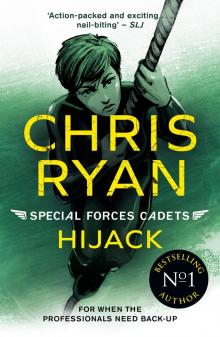 Hijack
Hijack Special Forces Cadets 2
Special Forces Cadets 2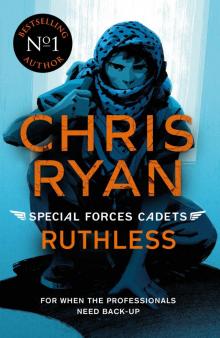 Ruthless
Ruthless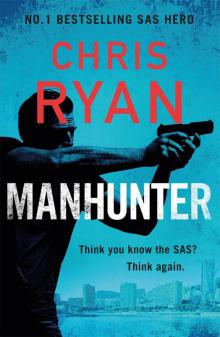 Manhunter
Manhunter Special Forces Cadets 1
Special Forces Cadets 1 Red Strike
Red Strike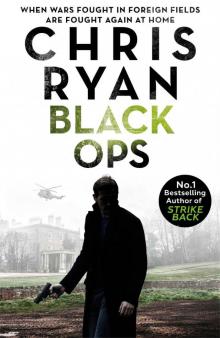 Black Ops
Black Ops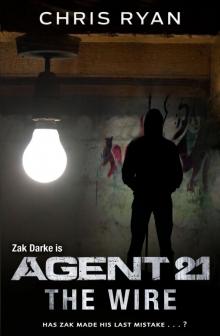 Agent 21: The Wire
Agent 21: The Wire Land of Fire
Land of Fire Alpha Force: Fault Line
Alpha Force: Fault Line Under Cover (Agent 21)
Under Cover (Agent 21)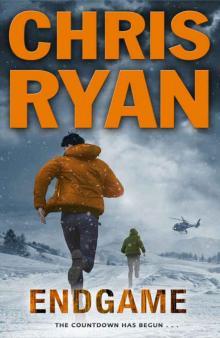 Endgame (Agent 21)
Endgame (Agent 21) Red Centre
Red Centre Blackout
Blackout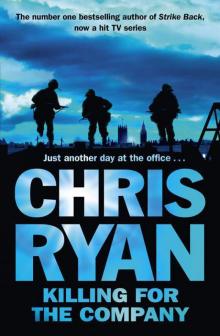 Killing for the Company
Killing for the Company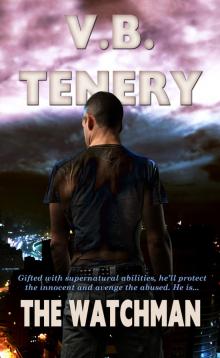 The Watchman
The Watchman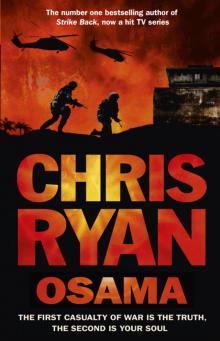 Osama
Osama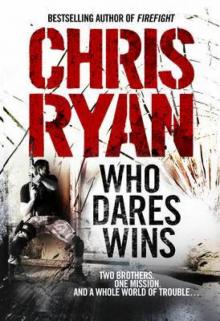 Who Dares Wins
Who Dares Wins The Kremlin Device
The Kremlin Device Hunter Killer
Hunter Killer Alpha Force: Untouchable
Alpha Force: Untouchable Stand By Stand By
Stand By Stand By Chris Ryan Extreme: Hard Target: Mission Four: Fallout
Chris Ryan Extreme: Hard Target: Mission Four: Fallout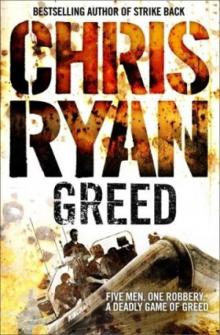 Greed mb-1
Greed mb-1 Alpha Force: Desert Pursuit
Alpha Force: Desert Pursuit Strike Back
Strike Back Greed
Greed The Bay Bulls Standoff
The Bay Bulls Standoff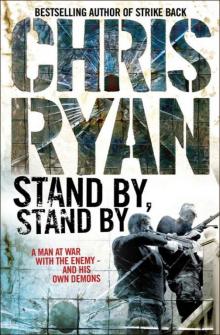 Stand By, Stand By gs-1
Stand By, Stand By gs-1 Outbreak
Outbreak Hunted
Hunted Vortex cr-4
Vortex cr-4 Rat-Catcher
Rat-Catcher Vortex
Vortex Bad Soldier
Bad Soldier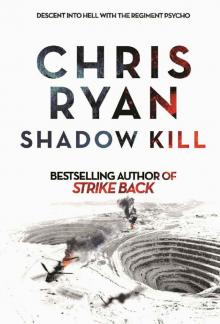 Shadow Kill: A Strikeback Novel
Shadow Kill: A Strikeback Novel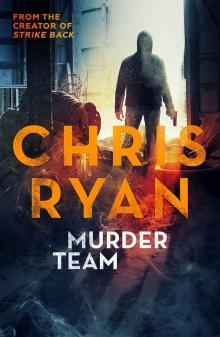 Murder Team (Kindle Single)
Murder Team (Kindle Single) One Good Turn
One Good Turn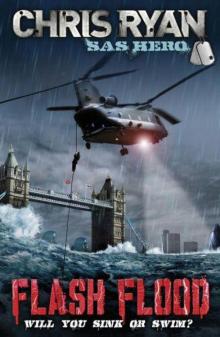 Flash Flood cr-1
Flash Flood cr-1 Night Strike
Night Strike Wildfire
Wildfire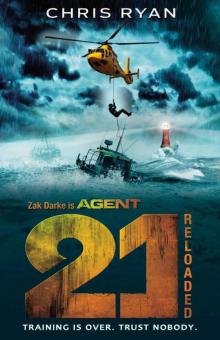 Agent 21: Reloaded: Book 2
Agent 21: Reloaded: Book 2 Chris Ryan Extreme: Hard Target: Mission Two: The Rock
Chris Ryan Extreme: Hard Target: Mission Two: The Rock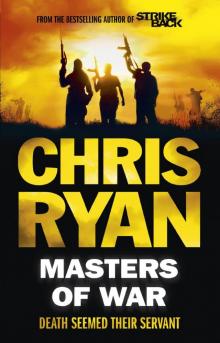 Masters of War
Masters of War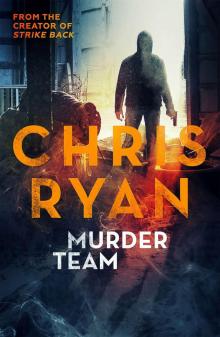 Murder Team
Murder Team War Dog
War Dog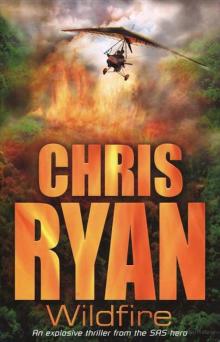 Wildfire cr-2
Wildfire cr-2 Survival
Survival The One That Got Away - Junior edition
The One That Got Away - Junior edition The Hit List
The Hit List The Kill Zone
The Kill Zone Medal of Honor
Medal of Honor Battleground
Battleground Twister
Twister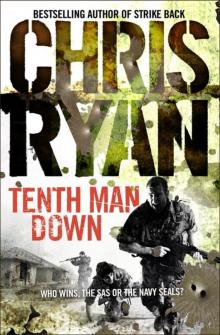 Tenth Man Down gs-4
Tenth Man Down gs-4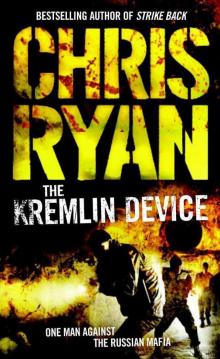 The Kremlin Device gs-3
The Kremlin Device gs-3 Hostage
Hostage Bad Soldier: Danny Black Thriller 4
Bad Soldier: Danny Black Thriller 4 Alpha Force: Blood Money
Alpha Force: Blood Money Firefight
Firefight Chris Ryan Extreme: Hard Target: Mission One: Redeemer
Chris Ryan Extreme: Hard Target: Mission One: Redeemer Hit List
Hit List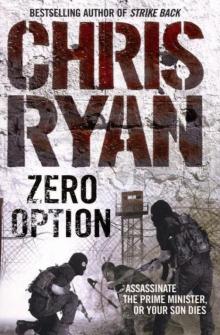 Zero Option gs-2
Zero Option gs-2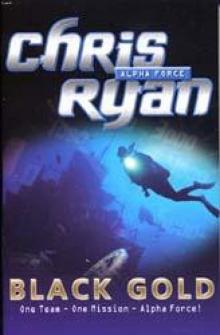 Black Gold
Black Gold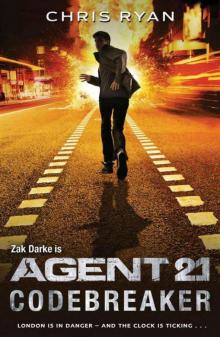 Agent 21: Codebreaker: Book 3
Agent 21: Codebreaker: Book 3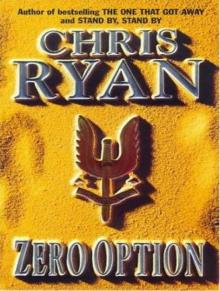 Zero Option
Zero Option Ultimate Weapon
Ultimate Weapon Tenth Man Down
Tenth Man Down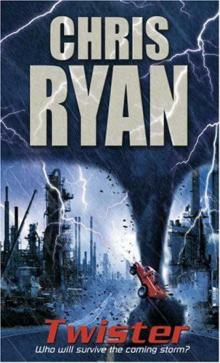 Twister cr-5
Twister cr-5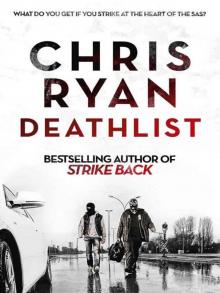 Deathlist
Deathlist Hellfire
Hellfire Flash Flood
Flash Flood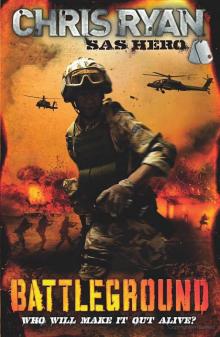 Battleground cr-6
Battleground cr-6 The Increment
The Increment